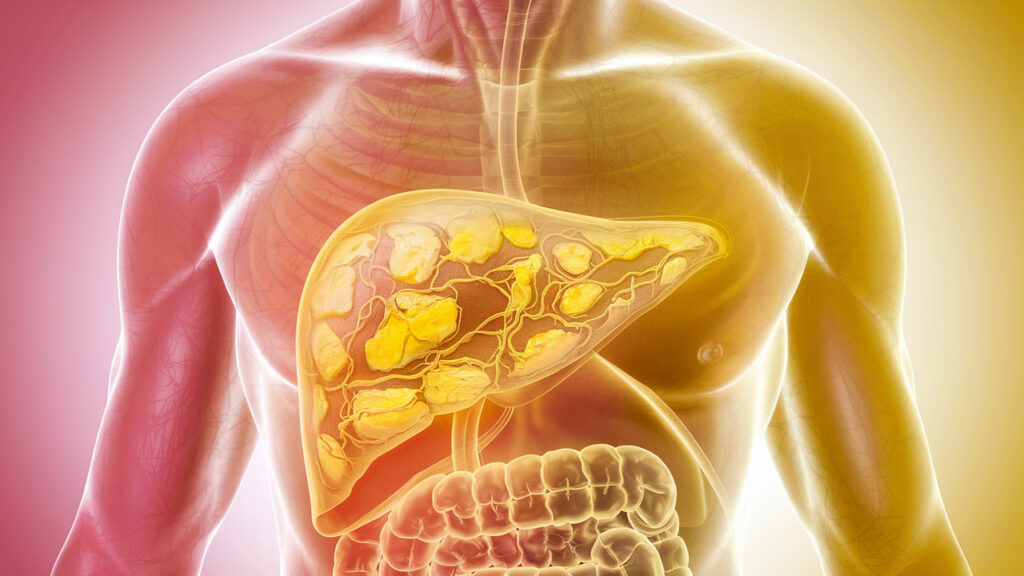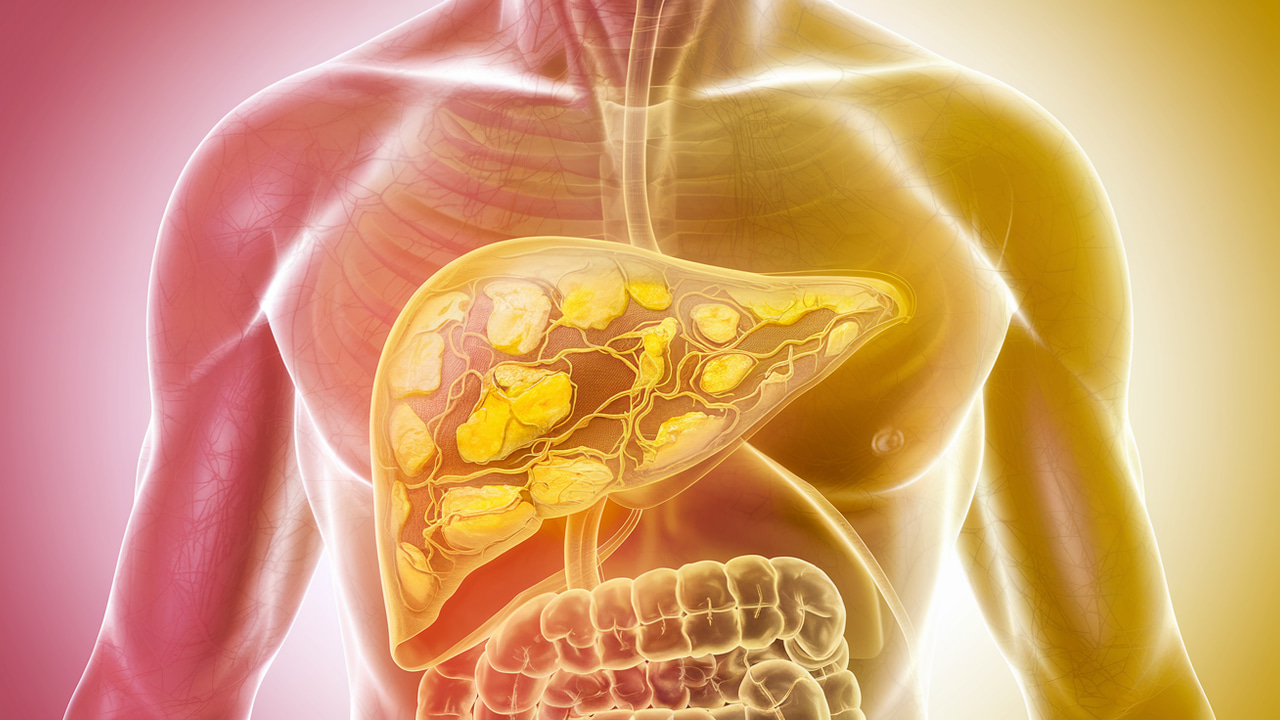What You Should Know About Non-Alcoholic Fatty Liver and Weight Gain
(Why You Might Be Gaining Weight Even if You’re “Eating Healthy”)
I used to think fatty liver was something only heavy drinkers dealt with. But then I found out about Non-Alcoholic Fatty Liver Disease (NAFLD) — and it completely changed how I looked at my own weight gain. I wasn’t drinking, I was eating what I thought was “clean,” and still, the fat just wouldn’t budge. Especially around my midsection.
When I started digging deeper, I discovered a hard truth: your liver health and weight are more connected than most people realize. You can be doing “all the right things,” but if your liver is storing fat, your body might refuse to let go of any more.
So if you feel like your fat loss is stuck or your energy is constantly drained — this might be what’s going on behind the scenes.

Table of Contents
What Is Non-Alcoholic Fatty Liver (NAFLD)?
NAFLD happens when fat builds up in your liver even though you don’t drink much (or at all). It’s incredibly common — and sadly, often missed. Many people walk around with early-stage fatty liver and don’t even know it.
It’s usually caused by too much sugar, processed carbs, seed oils, or long-term inflammation. Even if you’re not eating junk food every day, you could still have liver overload if you’ve spent years eating a modern Western diet — or if your body’s natural detox system has slowed down.
How a Fatty Liver Affects Weight Loss
Here’s the part no one told me: your liver is responsible for metabolizing fat. So if it’s already filled with fat, it can’t process what’s coming in. That leads to a backup — and your body starts storing fat in places it wasn’t before. This is why belly fat, love handles, and visceral fat often increase when liver function goes down.
A fatty liver also affects insulin resistance, hormones, and thyroid function — all key factors in your ability to lose weight and feel energized. If your liver isn’t functioning well, your metabolism slows, even if you’re dieting and exercising.
I learned this firsthand. I was working out consistently, eating better, but still gaining. The missing piece? My liver needed support, not more restriction.
Signs You Might Have NAFLD (Even If You’ve Never Heard of It)
You don’t need a diagnosis to know something’s off. Here are some signs I personally experienced:
- Persistent belly fat that wouldn’t go away
- Feeling sluggish and tired, no matter how much sleep I got
- Brain fog and trouble concentrating
- Cravings for carbs and sugar, especially in the evening
- Feeling puffy, inflamed, or bloated even with a “healthy” diet
If that sounds familiar, your liver might be overloaded or storing excess fat — and trying to get your attention.
What Finally Helped Me Start Losing Weight Again
I didn’t want to go on another crash diet. I wanted to heal the root issue. So I started supporting my liver with small daily changes:
- Drinking warm lemon water every morning
- Avoiding seed oils and processed sugars
- Eating more bitter greens and fiber-rich veggies
- Walking after meals to improve insulin and circulation
- And most importantly: using this natural liver support supplement every morning to detox gently and consistently
Within a few weeks, I started to feel lighter. The bloating went down, my cravings dropped, and the weight finally began to shift — not because I ate less, but because my body could finally process fat properly again.
The Bottom Line
If you’re struggling with weight gain and feel like you’ve tried everything, don’t ignore your liver. You don’t have to drink alcohol to have liver issues. NAFLD is silent, but it shows up in your energy, your waistline, your digestion, and your mood.
By focusing on repairing your liver instead of restricting your food, you give your body the chance to do what it naturally wants to do: heal, burn fat, and thrive.
And if you’re looking for a gentle way to get started, this supplement here was the turning point for me. It doesn’t rely on fasting or harsh detoxes — it supports your liver every single day in a sustainable way.
What really stood out to me was how common this issue is. Millions of people have non-alcoholic fatty liver disease and don’t know it. It doesn’t show up in routine blood tests unless you specifically look for it, and by the time symptoms become obvious, the liver is already struggling. I realized I wasn’t alone — and I wasn’t crazy for not seeing results on traditional diets.
I used to believe I just needed to try harder. More cardio. Fewer calories. Less fat. But all those strategies just made me more tired, frustrated, and bloated. Once I understood that my liver was overworked and inflamed, everything made more sense. It wasn’t about willpower. It was about internal healing.
When your liver is filled with fat, it’s like your body is stuck in storage mode. Instead of burning calories efficiently, it holds onto them — especially in the form of stubborn belly fat. And until you relieve that internal congestion, your body resists any effort to slim down.
Another important thing I learned was how toxic buildup plays a role. Our livers are meant to filter out waste, but when they’re overwhelmed by years of processed foods, environmental toxins, and blood sugar imbalances, they can’t keep up. That’s when fat starts to accumulate in the liver itself — and fat loss slows to a crawl.
Supporting the liver doesn’t have to be extreme. You don’t need a juice cleanse or to starve yourself. Simple changes made the biggest difference for me — things like drinking water throughout the day, adding liver-supportive herbs like milk thistle, and using my favorite natural supplement consistently in the morning.
One of the earliest wins I experienced was better sleep. Before, I’d toss and turn, wake up groggy, and feel heavy all day. But once I started focusing on liver health, I woke up with more energy — and even my sleep improved. Your liver plays a key role in regulating blood sugar and hormone balance while you sleep, so this change made total sense.
I also noticed that my skin cleared up. I didn’t expect it, but when your liver is detoxing properly, your skin doesn’t have to take over. That meant fewer breakouts, less puffiness, and a more even tone — all bonus benefits of doing the work on the inside.
Cravings used to control my afternoons. Especially sugar. I’d be good all morning and then feel like I needed something sweet by 3 PM. That changed when I started supporting my liver. Those intense cravings disappeared, and I felt more in control of my appetite — something I hadn’t experienced in years.
Even my emotions leveled out. I wasn’t as irritable, anxious, or overwhelmed. There’s a real connection between liver health and mood. When your body isn’t burdened by toxins and fat, it can regulate neurotransmitters and hormones more effectively — which means you feel more balanced mentally and emotionally.
Over time, I realized this wasn’t about weight loss anymore. It was about taking care of the organ that takes care of me. My liver works 24/7 behind the scenes — and once I started helping it do its job, my body rewarded me with more energy, better digestion, and steady, sustainable fat loss.
Looking back, I wish someone had told me sooner that weight gain isn’t always about what you eat — it’s often about how your body processes what you eat. And if your liver is overwhelmed, even the cleanest diet won’t fix the root issue.
Now, instead of fighting my body, I work with it. I support it. I give it what it needs. And the transformation has been real — physically, mentally, and emotionally. If I can turn it around by supporting my liver, I truly believe anyone can.

